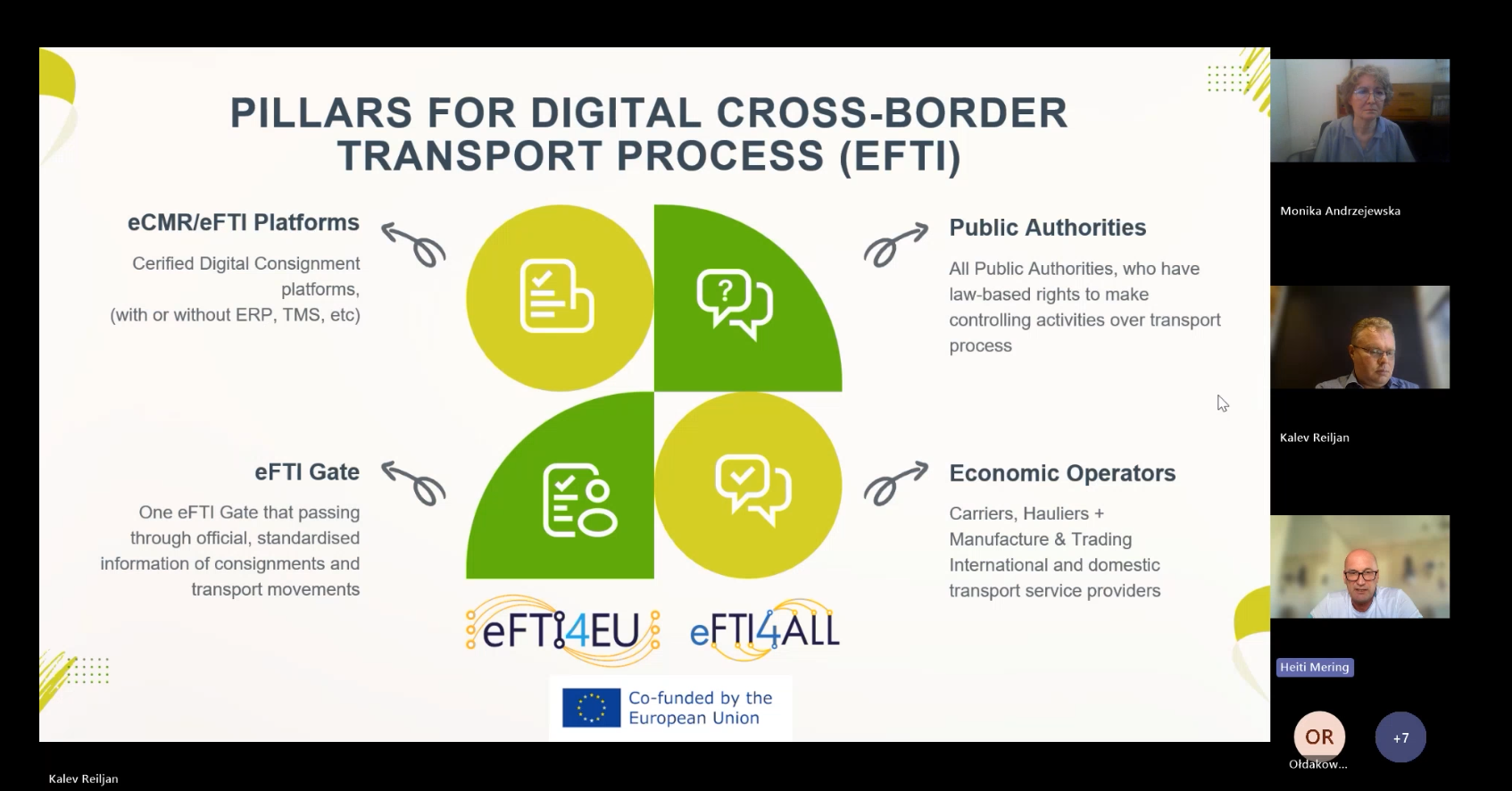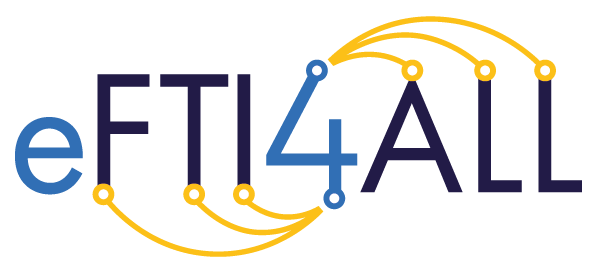On Saturday, 5 July 2025, the Polish Chamber of Commerce for Electronics and Telecommunications (KIGEiT) hosted a national webinar titled “The Government Part of the eFTI System – eFTI Gate”. Organised under the framework of the EU-funded eFTI4ALL project, this event marked a significant national milestone in Poland’s journey towards implementing the eFTI Regulation.
Held as part of the Member State National Events of the eFTI4ALL project, the webinar offered a valuable opportunity for Polish stakeholders to exchange knowledge, assess progress, and build awareness around the upcoming digital transition in freight transport. In particular, it focused on the role of the eFTI Gate — the government-facing element of the eFTI architecture that enables authorities to access digital transport documents submitted by businesses via certified platforms.

The session drew strong participation from key public institutions. Representatives from the Polish Ministry of Infrastructure (including both the Department of Road Transport and the Department of Railways), the Ministry of Finance, the Chief Inspectorate of Road Transport, and the Inland Navigation Offices in Wrocław and Szczecin all took part, engaging in technical and policy-focused discussions around how Poland is preparing for eFTI implementation. Their active involvement demonstrated the level of institutional commitment and inter-ministerial cooperation required to ensure that eFTI becomes a fully functional system.
At the heart of the webinar was the presentation of the Polish eFTI Gate, which forms a central pillar of the national eFTI infrastructure. KIGEiT and institutional partners illustrated how the eFTI Gate will interface with the certified platforms used by logistics operators, enabling the secure, structured exchange of transport data — such as waybills or permits — between companies and competent authorities.
Speakers delved into the technical architecture of the proposed system, the responsibilities of public actors, and the broader framework of rules and procedures that will shape B2G (Business-to-Government) data sharing. A pilot project already underway was also introduced, offering participants a glimpse into how Poland plans to test the eFTI Gate in real-life conditions — across transport modes, regions, and types of data. This pilot will help identify challenges, improve system interoperability, and ensure user-friendliness for both public bodies and businesses.
Beyond the technical discussions, the event served as a platform to promote institutional readiness and reinforce the importance of early planning. Presenters stressed that eFTI is not only a legal obligation, but also a chance to enhance administrative efficiency, reduce paperwork, and position Poland at the forefront of digital innovation in transport. By preparing well in advance of the 2027 deadline, Poland can ensure a smooth and coordinated rollout — while also contributing to broader European efforts to digitise freight operations.
The success of the event was evident not only in its turnout, but also in the level of interest it generated afterward. According to KIGEiT, the webinar prompted numerous follow-up enquiries and contact requests from attendees seeking further information and engagement. These are now being handled directly by KIGEiT, reinforcing the chamber’s central role as national coordinator and project partner within eFTI4ALL.
Looking ahead, participants expressed a shared interest in continuing these exchanges. It was provisionally agreed that further webinars and consultation rounds should be held, ensuring an ongoing dialogue between ministries, authorities, and technical experts involved in the eFTI implementation process.







